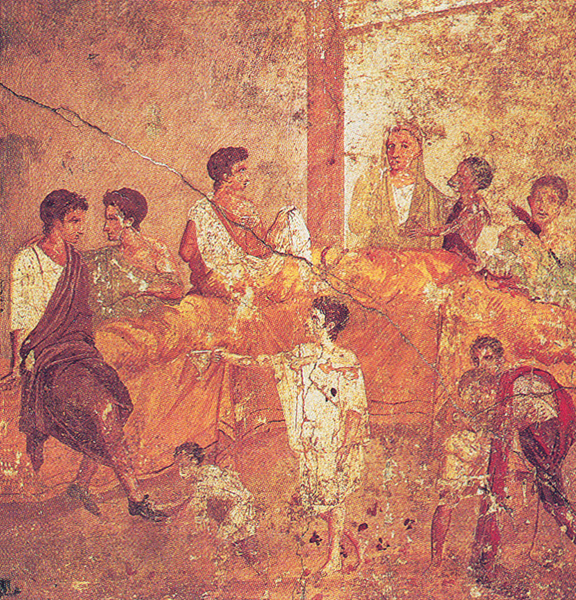Image Details

Scala/Art Resource, New York, NY
An ancient feast. This fresco from Pompeii captures the mood of a banquet that was no doubt similar to those in Corinth. The protocol at such feasts was rigidly fixed: The guests with the highest social status sat on the couches closest to the host and enjoyed better food and wine. A drinking party, usually all-male, followed the meal, with the entertainment ranging from a philosophic discourse to music to sexual dalliance. The trysts were both heterosexual and homosexual, conducted with either hetairae—“companions,” the ancient equivalent of escort service call-girls—or with young boys.
It was the entire context of ancient feasts—the consumption of meat from animals sacrificed to pagan gods, eaten in a pagan temple and followed by sexual immorality—and not the mere eating of such food that Paul was warning against in his first letter to the Corinthians.
